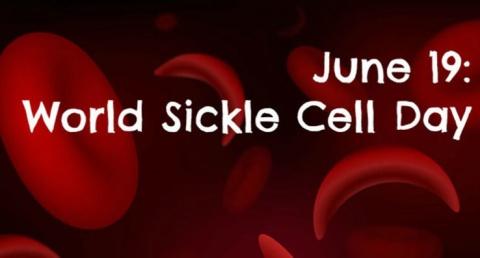
The Duke Pediatric and Adult Sickle Cell Clinics in collaboration with community partners are sponsoring two important events in downtown Durham in recognition of World Sickle Cell Day.
A "Shines the Light on Sickle Cell Disease" blood drive will be held on Friday, June 18 from 1:00 to 6:00 pm at the UDI Resource Center at 800 N. Mangum St. You can sign up for the drive online.
You are also invited to a health fair to help raise awareness about Sickle Cell Disease management and the importance of blood donation and bone marrow registry participation on Saturday, June 19 from 1:00 to 6:00 pm on East Main St. This event is planned in conjunction with Spectacular Magazine's Juneteenth Celebration, featuring a vast array of vendors, food trucks, fun-filled activities for kids of all ages, and live entertainment. We hope you will join us!
About Sickle Cell Disease
Sickle cell disease (SCD) is an inherited, lifelong blood disorder that causes individuals to produce abnormal hemoglobin, causing their red blood cells to become rigid and sickle-shaped. These sickled cells have a shortened lifespan, resulting in a constant shortage of red blood cells. When these sickled cells travel through the blood, they often get stuck in the smaller blood vessels, blocking other oxygen-rich red blood cells from freely flowing throughout the body. This leads to complications ranging in severity, including severe pain, acute chest syndrome (a condition that lowers the level of oxygen in the blood), stroke, organ damage, and even premature death.
Globally, it is estimated that 300,000 infants are born annually with sickle cell disease. The majority of these births occur in low-resource countries, especially in sub-Saharan Africa where the World Health Organization estimates 70 percent of the world’s population of children with SCD live. The majority of children suffer from chronic pain and numerous infections; ultimately, many die before their fifth birthday.
In the United States, nearly 100,000 individuals have SCD. The Centers for Disease Control and Prevention estimates that SCD affects 1 out of every 365 black or African-American births, and 1 out of every 16,300 Hispanic-American births.
Source: 2020 National Health Observances, National Health Information Center, Office of Disease Prevention and Health Promotion, U.S. Department of Health and Human Services, Washington, DC.